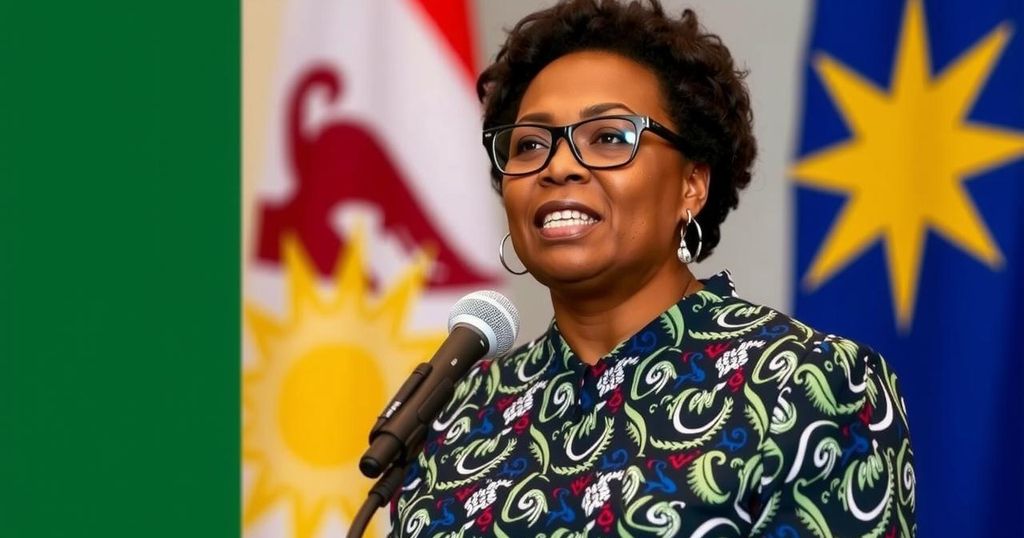World news
AFRICA, BOTSWANA, DEMOCRACY, ELECTIONS, ELECTORAL COMMISSION OF NAMIBIA, EUROPE, GERMANY, GOVERNANCE, GOVERNMENT, HA, INDEPENDENCE MOVEMENT, INDEPENDENT PATRIOTS FOR CHANGE, NAMIBIA, NANDI - NDAITWAH, NET, PAN, PANDULENI ITULA, PARLIAMENTARY SEATS, POLITICAL DYNASTY, SOUTH AFRICA, SWAPO, VP, WINDHOEK
Li Chen
0 Comments
Namibia Elects First Female Leader Amidst Electoral Controversy
Namibia has elected its first female president, Netumbo Nandi-Ndaitwah, who garnered 57% of the vote despite opposition allegations of election irregularities. This marks a historical moment for the country, with SWAPO retaining power amid disputes over the electoral process. The election controversy may lead to court challenges from opposition parties dissatisfied with the voting conditions.
Namibia has made history by electing its first female leader, Vice President Netumbo Nandi-Ndaitwah, who secured victory in the recent presidential election, with 57% of the votes cast. Despite challenges including technical glitches and allegations of an illegal voting extension, her party, SWAPO, continues its long-standing governance since the country’s independence in 1990. Opposition groups have raised concerns about the electoral process and vowed to contest the results in court after the election was marred by issues such as ballot shortages, which they claim disenfranchised many voters. Nandi-Ndaitwah, a prominent figure in Namibia’s independence movement, will become the nation’s fifth president, following the death of President Hage Geingob earlier this year. The opposition, led by Panduleni Itula of the Independent Patriots for Change, has announced plans for a legal challenge against the election results, citing the mishandling of the electoral process as unconstitutional.
The recent presidential election in Namibia marks a significant milestone in the nation’s political history, as it results in the first female president taking office. Netumbo Nandi-Ndaitwah, previously the vice president and a member of the SWAPO party, has been part of the country’s political arena since the independence movement against apartheid South Africa. Her election amidst a backdrop of technical voting issues points to ongoing tensions within Namibian politics, particularly between the ruling party and opposition groups, which are concerned about electoral integrity. Namibia’s political landscape is characterized by the long dominance of SWAPO, which has held power since 1990. The recent electoral challenges have sparked discussions on democratic practices and voter accessibility in the country.
The election of Netumbo Nandi-Ndaitwah as Namibia’s first female president represents a progressive step for gender representation in African politics. However, the legitimacy of the electoral process is under scrutiny due to claims of technical malfunctions and voter disenfranchisement, which have prompted opposition parties to seek judicial intervention. The outcome of this election and the subsequent legal challenges will likely shape the future political landscape of Namibia as it navigates its longstanding challenges associated with governance and electoral integrity.
Original Source: abcnews.go.com




Post Comment